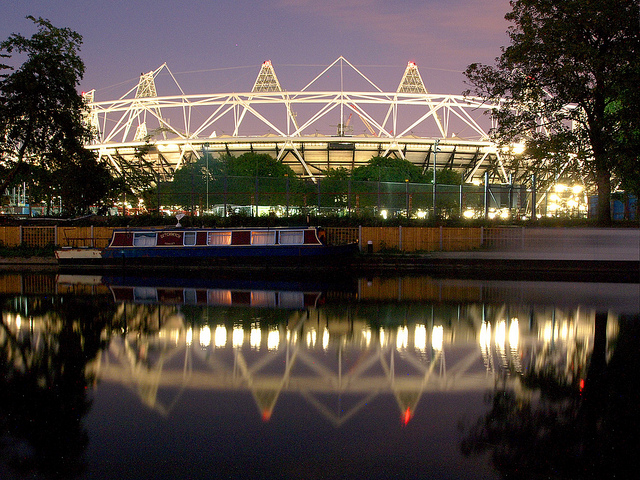By Mark Baber
April 12 – West Ham’s move to London’s Olympic Stadium will come under increased public scrutiny following a ruling by the UK’s Information Tribunal which rejected in full the London Legacy Development Corporation (LDDC)’s appeal against an earlier Information Commissioner ruling to reveal full details of the secret contract enabling West Ham to move into the publicly owned Olympic Stadium.
The ruling brings the day when taxpayers will find out how much rent West Ham is paying for its new stadium, how great any taxpayer subsidy to West Ham will be and, more generally, the scale of the blunders made by Olympic organisers and the London mayor in their planning for the stadium legacy, a lot closer, although limited rights of appeal are still available for the LDDC.
West Ham will pay £15 million towards the conversion cost of the £701 million stadium that hosted the London 2012 Olympics. But other details of payments have been withheld. It is understood that West Ham will pay annual rent of about £2.5 million– including annual rent, understood to be around £2.5m, and the specifics of other payments – have so far been withheld.
The cost of the conversion alones has ballooned to more than £250 million to make the stadium suitable for both football and athletics. The original estimate was for £160 million. West Ham’s £15 million contribution looks like good business for its owners and was described by Arsenal manager as equivalent to “winning the lottery”.
The in formation ruling came as the result of efforts of Freedom of Information campaigners, in particular Richard Hunt, and reinforces the rights of UK taxpayers to information about how their money is spent.
The ruling was welcomed by the Olympic Stadium Coalition (OSC) – a coalition of 14 fan trusts from a number of clubs from around the country, including those most directly affected by West Ham’s move such as the Arsenal Supporters’ Trust, Charlton Athletic Supporters’ Trust, Leyton Orient Fans’ Trust and Tottenham Hotspur Supporters’ Trust.
In a press release the OSC said, it praises the Information Tribunal for “Standing up for what is right”, and that “the information sought by the coalition, MPs, the entire Greater London Assembly and thousands of members of the public will now have to be published.”
A coalition spokesman said: “We’re naturally delighted with the outcome, as we see this as an issue of fairness to the taxpayer, to clubs near and far, and to football as a whole. We now respectfully request that the LLDC do what is right, waive the right to an appeal, and publish the deal in full so that it can be properly assessed and its implications understood.”
“Naturally, due process has to be completed, and though the LLDC’s appeal has been dismissed, it will be their decision as to whether they want to continue to pursue a case that has fallen at every hurdle – with the further financial cost to the taxpayer that will bring.”
“We believe that the tribunal stood up for what is right, namely the right of members of the public to know how their assets are being used, and money is being spent.”
“The very reason we launched this campaign was because there was considerable doubt about the use of a major public asset, and the money being spent. Don’t forget that these are terms granted to a privately owned business: a Premier League football club who will next year be in receipt of more than £100 million per-season just for turning up.”
The LLDC still has the right to appeal against the decision on a point of law – for instance if they argue the law was applied incorrectly, there was a mistake in the way the decision was arrived at or good reasons weren’t given for the decision, and by exercising this right they may be able to put off the political embarrassment release of the figures is likely to cause.
An LLDC spokesperson said, “We are disappointed by the tribunal’s decision.
“We have already published the vast majority of the contract and only undertook this appeal following very clear legal advice that to release the remaining details could significantly impact the stadium’s ability to act competitively.
“The ruling will result in significant challenges given the commercial realities of a highly competitive market, which could amount to many millions of pounds being lost over the term of a 99-year deal.”
One possible consequence of publication of the secret deal may be a challenge under European Competition Law that the deal represents a form of illegal state aid to West Ham. However, even that is unlikely to put much of a dent in the massive increase in the value of West United (and thus the personal wealth of owners David Gold and David Sullivan) which tenancy of the converted Olympic stadium provides them.
Contact the writer of this story at moc.l1744974031labto1744974031ofdlr1744974031owedi1744974031sni@r1744974031ebab.1744974031kram1744974031

